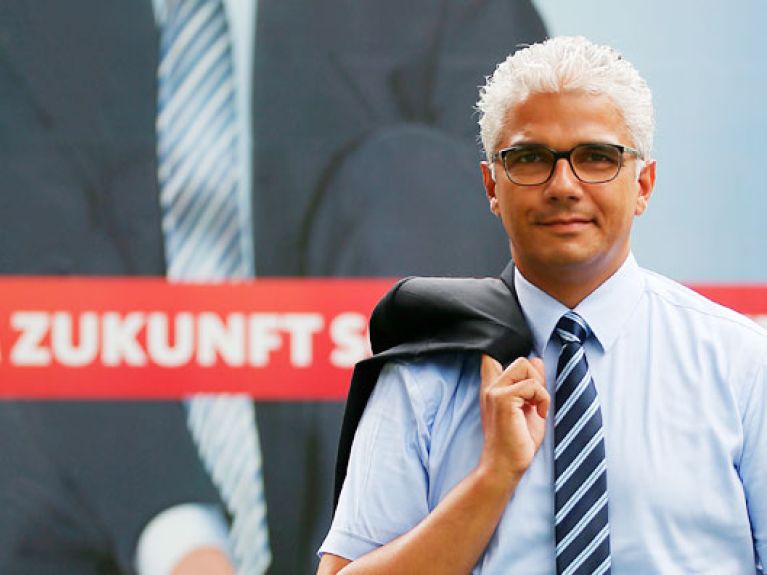Asians in Germany: faces of diversity
Their creativity and dedication enrich Germany: five people who have roots in Asia but live perfectly normally in Germany.

MARCEL NGUYEN
Olympic gymnast
He may not have won a medal in Rio in 2016 – unlike at the 2012 Olympic Games in London – but Marcel Nguyen, son of a Vietnamese father and a German mother, has received another great honour: an element he first performed has been included in the International Gymnastics Federation’s Code of Points as “The Nguyen”. The gymnast, who trains near Stuttgart, was the first to perform “a free hip circle mount from the side of the bars with three quarter turn” during the team finals at the Olympic Games. “I have immortalised myself in the world of gymnastics with this element,” Nguyen said.
SENTHURAN VARATHARAJAH
First-time novelist
The literary debut of Senthuran Varatharajah, whose parents fled to Bavaria with him as a baby from the civil war in Sri Lanka, was described by the German press as an “epistolary Facebook novel” or “Neue Heimat chat room”. In any event, Vor der Zunahme der Zeichen (Before the Signs Increased) is a very philosophical engagement with the experience of migration. The major themes are homeland, flight, arrival, kindergarten, school – and repeatedly, language.
HYUN WANNER & YOUNG-MI PARK-SNOWDEN
Kimchi restaurateurs
Almost everyone in Germany knows Samsung, Hyundai and Gangnam Style. But surely there’s more than that, Young-Mi Park-Snowden and Hyun Wanner thought, both with Korean roots. So in 2009 they opened the Kimchi Princess restaurant in the former Berlin City Archive to promote Korean cuisine and lifestyle, which was underrepresented in Germany till then. It was so successful – even George Clooney dined there – that more restaurants have since been opened: the Angry Chicken in Kreuzberg and the Mani mogo in Berlin-Adlershof.
ASHOK-ALEXANDER SRIDHARAN
Lord Mayor
“Even if it’s not obvious at first glance, I’m a Bonn boy,” writes Ashok-Alexander Sridharan on his website in the local Rhineland dialect (“ne bönnsche Jung”). The fact is that almost all the important events in his life took place in Bonn: his birth, school education, university studies and, since September 2015, the Federal City’s top job. But in his new position Sridharan never denies his roots: “I’m grateful to my Indian father not only for the colour of my skin, but also for a bilingual upbringing and insights into a totally different culture.”

